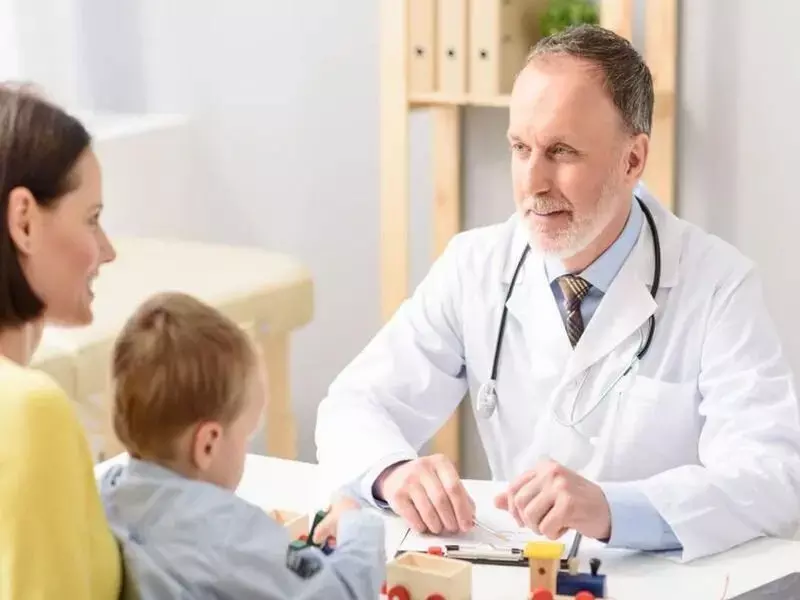- Home
- Medical news & Guidelines
- Anesthesiology
- Cardiology and CTVS
- Critical Care
- Dentistry
- Dermatology
- Diabetes and Endocrinology
- ENT
- Gastroenterology
- Medicine
- Nephrology
- Neurology
- Obstretics-Gynaecology
- Oncology
- Ophthalmology
- Orthopaedics
- Pediatrics-Neonatology
- Psychiatry
- Pulmonology
- Radiology
- Surgery
- Urology
- Laboratory Medicine
- Diet
- Nursing
- Paramedical
- Physiotherapy
- Health news
- Fact Check
- Bone Health Fact Check
- Brain Health Fact Check
- Cancer Related Fact Check
- Child Care Fact Check
- Dental and oral health fact check
- Diabetes and metabolic health fact check
- Diet and Nutrition Fact Check
- Eye and ENT Care Fact Check
- Fitness fact check
- Gut health fact check
- Heart health fact check
- Kidney health fact check
- Medical education fact check
- Men's health fact check
- Respiratory fact check
- Skin and hair care fact check
- Vaccine and Immunization fact check
- Women's health fact check
- AYUSH
- State News
- Andaman and Nicobar Islands
- Andhra Pradesh
- Arunachal Pradesh
- Assam
- Bihar
- Chandigarh
- Chattisgarh
- Dadra and Nagar Haveli
- Daman and Diu
- Delhi
- Goa
- Gujarat
- Haryana
- Himachal Pradesh
- Jammu & Kashmir
- Jharkhand
- Karnataka
- Kerala
- Ladakh
- Lakshadweep
- Madhya Pradesh
- Maharashtra
- Manipur
- Meghalaya
- Mizoram
- Nagaland
- Odisha
- Puducherry
- Punjab
- Rajasthan
- Sikkim
- Tamil Nadu
- Telangana
- Tripura
- Uttar Pradesh
- Uttrakhand
- West Bengal
- Medical Education
- Industry
Most children with ADHD don't receive treatment for their symptoms, contrary to common belief: JAMA

Most children with ADHD don't receive treatment for their symptoms, contrary to common belief suggests a new study published in the JAMA
Characterizing the extent and pattern of unmet needs for treatment of children with attention-deficit/hyperactivity disorder (ADHD) could help target efforts to improve access to ADHD medications and outpatient mental health care.
A study was done to describe current ADHD medication use and lifetime outpatient mental health care among a large national sample of children with ADHD.
This study uses cross-sectional survey data from the first wave of the Adolescent Brain and Cognitive Development Study (n = 11 723), conducted from June 1, 2016, to October 15, 2018, among 1206 school children aged 9 and 10 years who met parent-reported Diagnostic and Statistical Manual of Mental Disorders (Fifth Edition) criteria for current ADHD. Statistical analysis was performed from March 23, 2022, to March 10, 2023. Current ADHD medications including stimulants and nonstimulants, lifetime outpatient mental health care, or either treatment. Weighted results are reported.
Results
Among a sample of 11 723 children, 1206 had parent-reported ADHD, 759 White, non-Hispanic children were currently receiving ADHD medications. Children receiving ADHD medications included a significantly higher percentage of boys, White children than Black children, children of parents without a high school education than of parents with a bachelor’s degree or higher , and children with the combined subtype of ADHD than with the inattentive subtype Approximately 26.2% of children (301 of 1206) with parent-reported ADHD had ever received outpatient mental health care. Children receiving outpatient mental health care included a significantly higher percentage of children whose parents had a high school education or some college than a bachelor’s degree or higher, children with family incomes of less than $25 000 or $25 000 to $49 999 han $75 000 or more, and children with the combined subtype of ADHD than with the predominantly inattentive subtype or the hyperactive-impulsive subtype of ADHD.
This cross-sectional study of children with parent-reported ADHD suggests that most were not receiving ADHD medications and had never received outpatient mental health care. Gaps in treatment, which were not directly associated with socioeconomic disadvantage, underscore the challenges of improving communication and access to outpatient mental health care for children with ADHD.
Reference:
Olfson M, Wall MM, Wang S, Laje G, Blanco C. Treatment of US Children With Attention-Deficit/Hyperactivity Disorder in the Adolescent Brain Cognitive Development Study. JAMA Netw Open. 2023;6(4):e2310999.
doi:10.1001/jamanetworkopen.2023.10999
Dr. Shravani Dali has completed her BDS from Pravara institute of medical sciences, loni. Following which she extensively worked in the healthcare sector for 2+ years. She has been actively involved in writing blogs in field of health and wellness. Currently she is pursuing her Masters of public health-health administration from Tata institute of social sciences. She can be contacted at editorial@medicaldialogues.in.
Dr Kamal Kant Kohli-MBBS, DTCD- a chest specialist with more than 30 years of practice and a flair for writing clinical articles, Dr Kamal Kant Kohli joined Medical Dialogues as a Chief Editor of Medical News. Besides writing articles, as an editor, he proofreads and verifies all the medical content published on Medical Dialogues including those coming from journals, studies,medical conferences,guidelines etc. Email: drkohli@medicaldialogues.in. Contact no. 011-43720751


